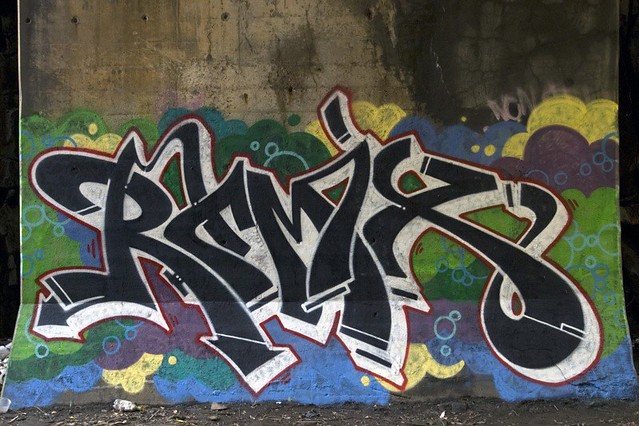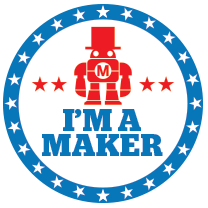As I wrap up my work for CEP811, a course focused on the Maker Movement and adapting innovative technologies to education, I took time to reflect on all of the different projects I have worked on over the past seven weeks.
I realized that each project was a piece of a larger #MakerEd puzzle. The thread of making runs through them all and by engaging in each one of them (e.g., remixing, playful exploration, creating lesson plans and assessments, etc), educators can begin to own and embody the mindsets associated with the Maker Movement. Stepping back to look at each project, I reorganized them in a cycle that I think could help educators begin to dip their toes into making and become more comfortable with it before integrating it into their teaching and later their classroom (design) and everyday practice. Although I organized the cycle to be completed as an ongoing, step-by-step process, educators could jump in at any point. Just start with the projects or activities that you are most comfortable with before continuing to the next “piece of the puzzle.”
Designing the Maker Educator Cycle (see below) allowed me to see how the projects I created over the past seven weeks and the readings I have explored, have truly led me deeper down the Maker Movement path. I had an opportunity to more deeply infuse maker projects in my curriculum and explicitly explore making in the classroom in a way that is meaningful and supports students (and teachers) in developing maker mindsets. I think these experiences, particularly designing a unit plan and a maker assessment, reminded me how vital it is to explore how teachers are makers and designers in our daily practice. To really improve and innovate, we have to continually be making (e.g., lessons, assessments, remixes, etc) educational content as well as maker projects (e.g, a robot maze, an LED student response system, etc). I am excited to continue this work as a maker educator and iterate the lesson plans, assessments, and projects I designed to make them even better. If you are an educator using making in your classroom or if you are trying to help an educator start exploring the Maker Movement, I hope the Maker Educator Cycle is helpful and I welcome any feedback on its design.
The Maker Educator Cycle (click to see links)
Creative Commons Attributions
Learn icon-o1 by MCruz is licensed under CC BY-SA 3.0 (Personalized Learning)
Paper Blank Pencil by ClkerFreeVectorImages is licensed under Public Domain CC0 (Design Lessons)
Pictogram Resolved by AzaToth is licensed under Public Domain CC0 (Create Assessments)
Remix is a Creative Commons Trademark icon (Remix)
Toolbox by ClkerFreeVectorImages is licensed under Public Domain CC0 (Toolbox)
Two Point Perspective Room by maburaho26 is licensed under CC BY-ND 3.0 (Redesign your Environment)
Wikimedia Deutschland icon explore by Cornelius Kibelka is licensed under CC BY-SA 3.0 DE (Playful Experimentation)
Avatar created at: http://www.reasonablyclever.com/mini/flash/minifig.swf














You must be logged in to post a comment.